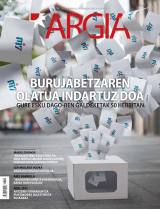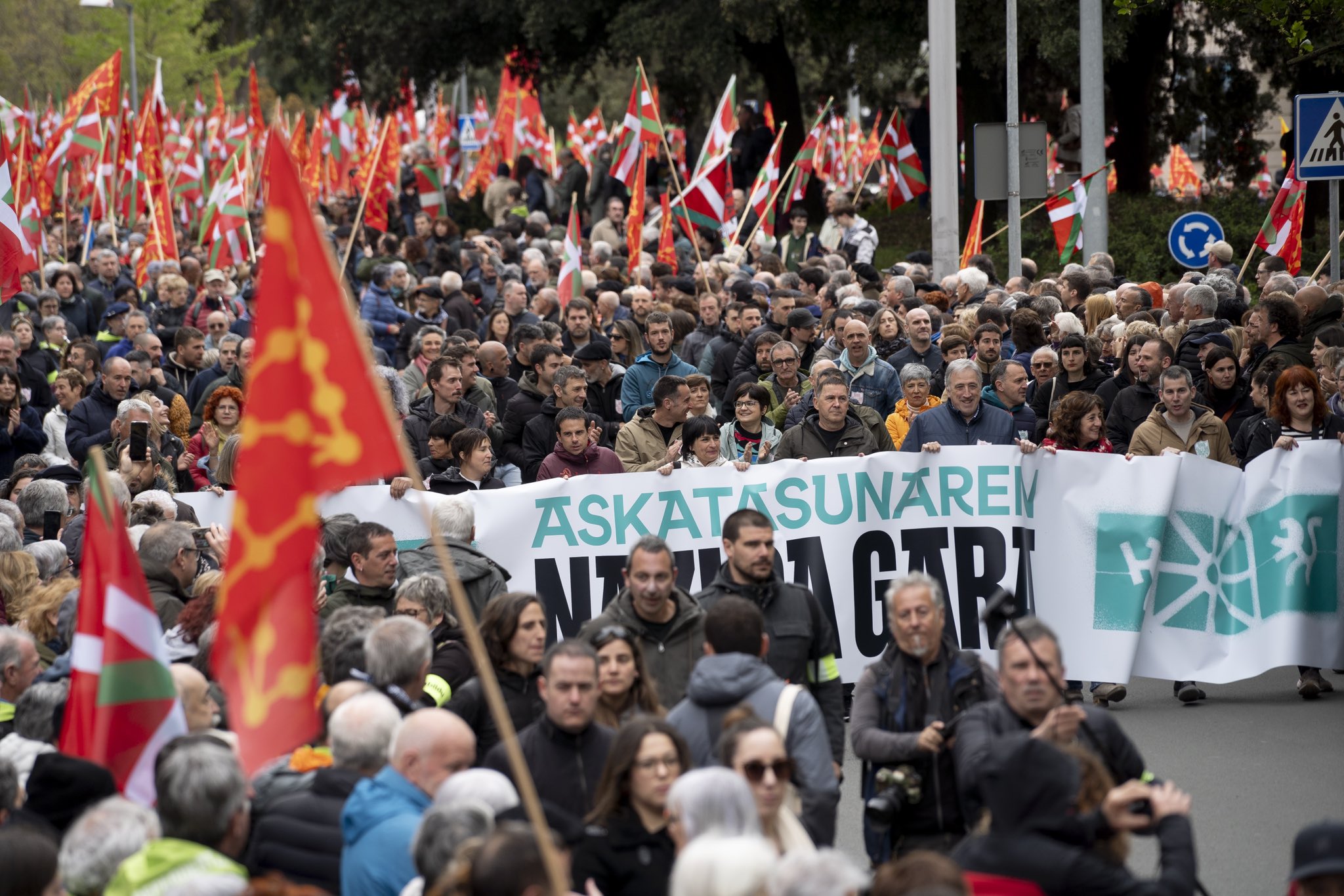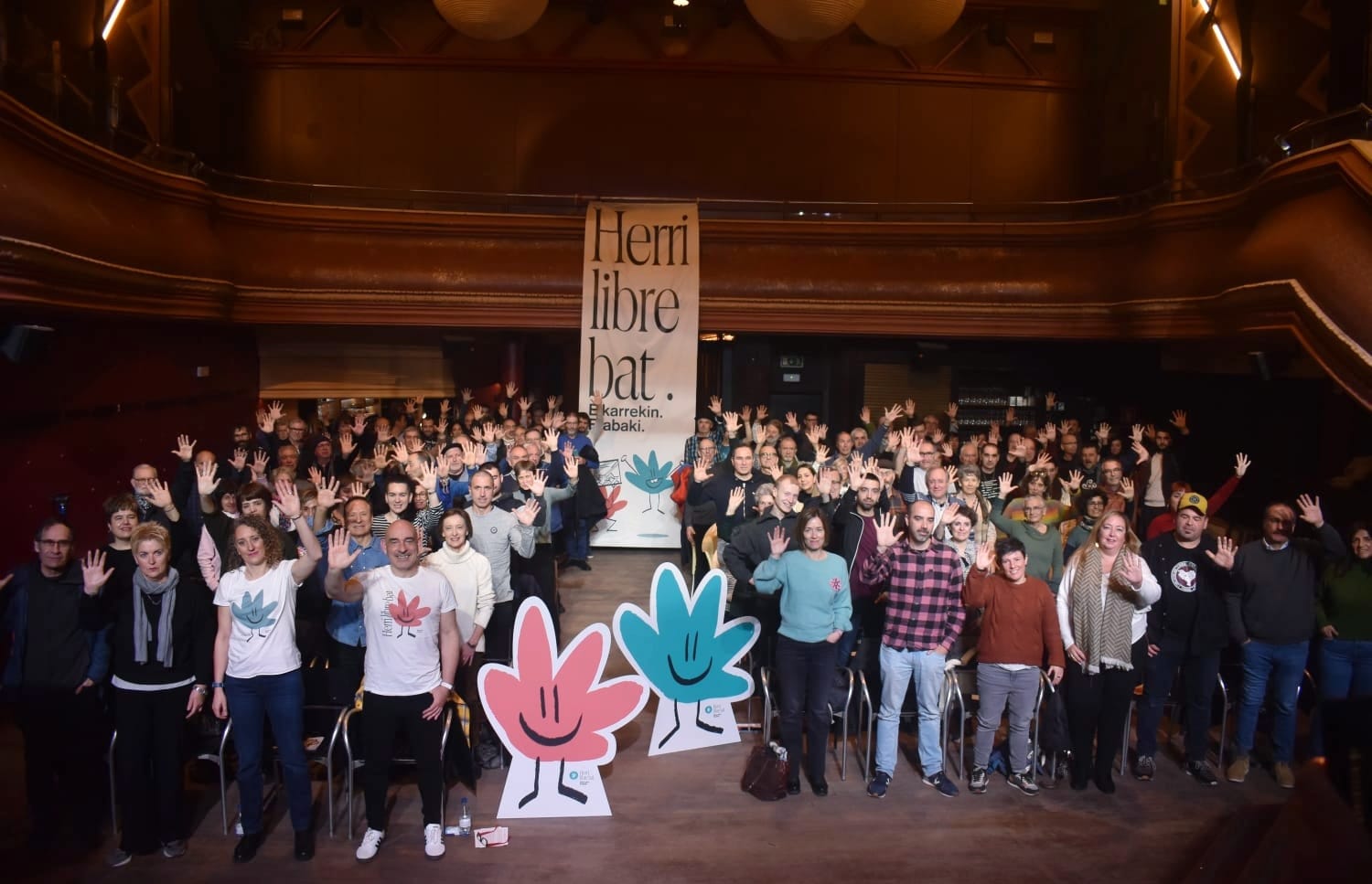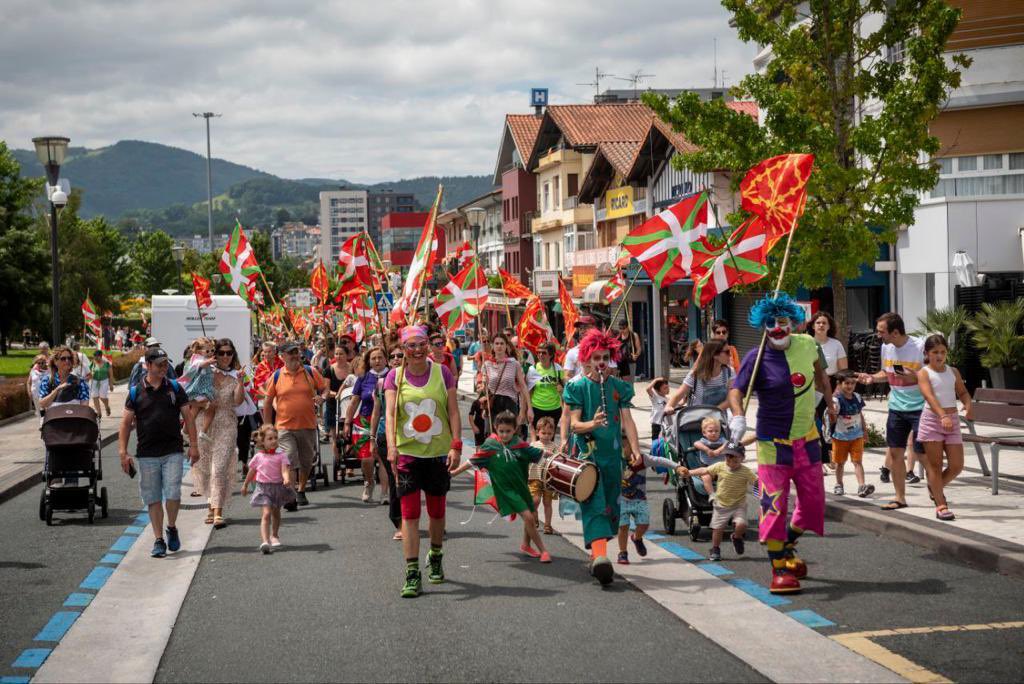The great leap from the right to decide
- On May 7, some 285,000 residents from 50 localities will have the opportunity to decide on the future of Euskal Herria. Or more precisely, what they want them to vote for: the Basque republic, independence, permanence in Spain… We are facing the biggest consultation on the right to decide that has never been done.

Of the 301,245 registered voters, almost 28% voted in their day, 83,350 people (95%) voted to separate from Spain and 3% voted to stay. With the polls next Sunday, about half a million citizens will be able to vote on the right to decide in the consultations organised by GED. They are not official, as you know, but they express political will, and that is the basis of all kinds of constituent character.
This institution, created in 2013, is clear that if today the Basque institutions cannot ask it, they will do that work so that one day the institutions will do it, because that is the real objective of the ED. In any case, beyond the usual electoral processes, we are faced with one of the largest continuous mobilisations that have taken place in Basque society, and that must be taken into account both in favour of and against the right to decide. Even more so with the situation that is being experienced in Catalonia.
Report on self-government
In recent decades, various initiatives have been launched around the self-determination, independence or decision of the Basques and Basques. No one has achieved the involvement of citizenship as it is today.
And yet, Dena Esku Dago does not escape the uncertainty that is one of the strongest features of these times: What for? Is it time? Is there enough force? Who? How? These are frequently asked questions at key moments.
Among other things, GED has succeeded in getting 2,000 people to work on their teams, as well as bringing together people of different political tendencies, according to the association. It's a lot. At the heart of the successful human chain of 2016, the claim was made in a festive atmosphere, it was wanted to stay in the same line with the event of the stadiums, but it was not entirely right and did not leave such a good taste. The waves of the polls are leaving another trace, among other things because it has been produced from the claim.
On June 10, the GED will present the Citizens' Pact, which it considers to be key to making a qualitative leap in the social projection of the sovereign forces. Next year the waves will continue and the water will reach the capitals for the first time, according to forecasts. However, it seeks, among other things, to decisively influence the content of the self-government committee being held in the Basque Parliament: that the text to be adopted should include the right to decide within it.
And there is no doubt that a key moment can be experienced in the area of self-government, because the Basque Parliament talks about the reform of the Gernika Statute and can take it to Madrid if the minimum consensus is reached. Why and between whom? Here's the core of the doubt. Among other things, the PNV has mentioned the possibility of bringing the text to the CAV for consultation before its transfer to Madrid so that it knows what Basque society wants.
Mistrust
However, with what is happening at the institutional level of the CAV, there are social and sovereign sectors of the Basque society that are opposed to the position of the PNV. Proof of this are the hard discussions that have taken place in recent weeks between ALS and the NIP. Former trade union secretary general Joxe Elorrieta also wanted to make it clear in his latest book that the LAB trade union continues to read. If the PNV no longer wants a sovereign process, why do others commit themselves to it? ELA sees no relationship of forces for this and proposes the alliance of leftist sovereign forces to advance the right to decide and the daily social struggles, trusting that at some point in the future it may force more conservative forces, especially the PNV.

Seeing the Jeltzales in the social aggression and bilaterality scheme with Madrid, ELA finds it difficult to accumulate sovereignty under these conditions. Basically, the theoretical majority in favour of the right to decide of the Basque Parliament 75-57 seems to be a mirage, even more so after the agreement reached between PNV, PSE and pp for the first budgets of the Basque Government legislature. As early as November 2016, ELA Foundation President Manu Robles Arangiz, Xabi Anza, launched the toughest questions on his blog: "Who is going to give bad news to the nationalist universe? Who is going to tell you once and for all that the Abertzale sum cannot be the starting point of the sovereign strategy?”
The GED also has more difficulties, the most sovereign sector of the PNV is approaching more tenderly, but it has more difficulty attracting the one who dominates the party, and has to go deeper into it to influence the decisions of Andoni Ortuzar and Iñigo Urkullu. Clearly, more citizens, including the Jeltzales, will be affected more.
An organizational force is perceived in Basque society, not in an issue that affects the sovereign process. But it is clear that where there is no confidence it is difficult to build complicity, an indispensable component in the accumulation of forces, whether in the sphere of national construction or in the sphere of social sovereignty.
This issue of ARGIA includes an interview with the UPV/EHU professor and a member of the secretariat of Segment Esku Dago, Mario Zubiaga.
Bizkaian eta Gipuzkoan egin bezala, EAEko estatus politiko berriak Euskal Herria nazio gisa aitortzea eta erabakitzeko eskubidea jasotzea eskatu dute Arabako Batzar Nagusietan alderdi abertzaleek.





















